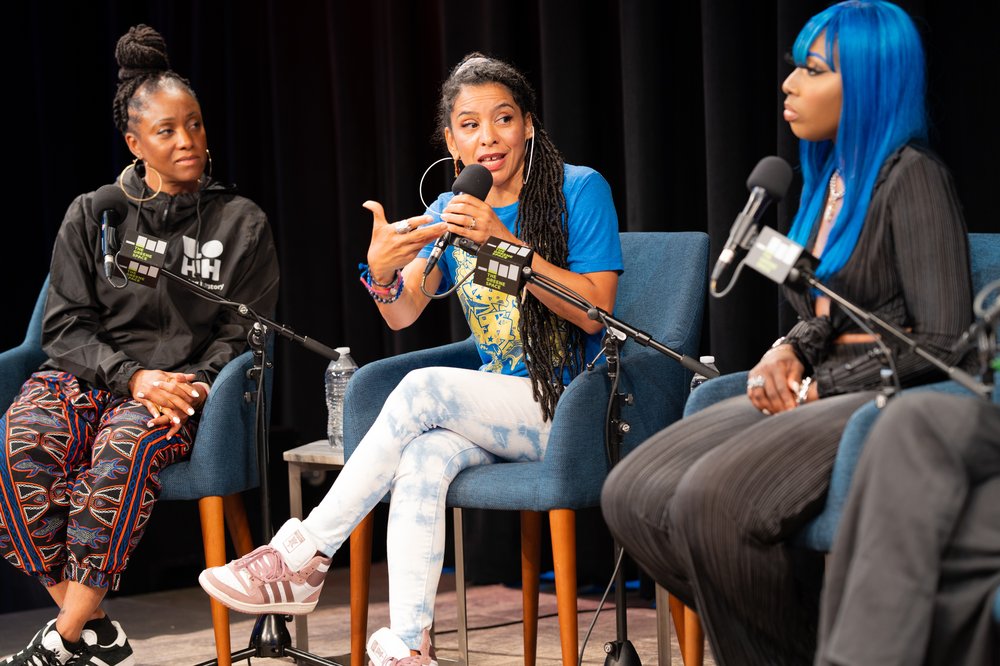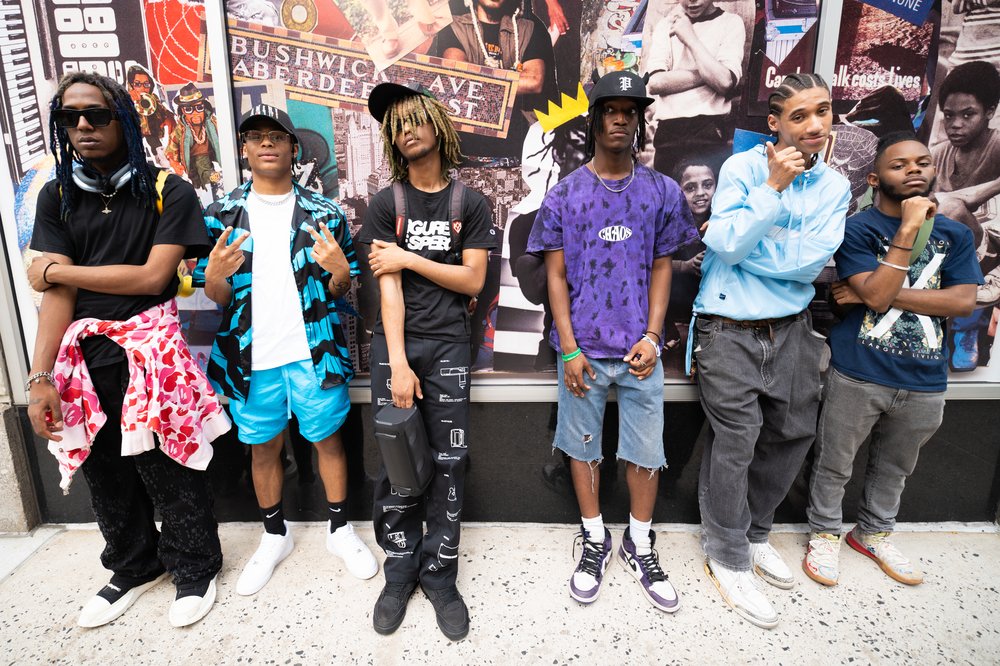Women hip-hop trailblazers set the record straight at The Greene Space
July 13, 2023, 12:46 p.m.
Clover Hope moderated an in-depth discussion with Michele Byrd-McPhee, Ana Garcia, a.k.a. Rokafella, and Connie Diiamond, exploring the roles women have played in creating, expanding and preserving hip-hop.

A handful of artists who’ve participated in shaping the city's cultural history and legacy came together to set the record straight on Wednesday evening.
The occasion was a panel discussion called “Ladies Night: Women Who Shaped Hip-Hop in New York City,” produced by The Greene Space in collaboration with WNYC and Gothamist.
The conversation, which marked the 50th anniversary of hip-hop's birth in the Bronx, illuminated the work of women artists in multiple avenues of the expansive culture.
Journalist and author Clover Hope was joined by fast-rising Bronx rapper Connie Diiamond as well as Michele Byrd-McPhee and Ana Garcia (a.k.a. Rokafella), two longtime participants in the hip-hop dance scene, for an in-depth discussion that explored the roles women have played in creating, expanding and preserving the artform and culture.
Hope, the discussion's moderator and the author of the 2021 book “The Motherlode: 100+ Women Who Made Hip-Hop,” said the main goal of the panel was to provide a spotlight for women, who are often overlooked in discussions about hip-hop.
“This panel was just all about taking up space,” Hope told Gothamist. “The reason that these women aren't talked about is that they aren't put on the forefront, and the conversations aren't there. Once you create a space to have those conversations, it creates the awareness that then leads to women being more recognized.”
Hope said that women from different generations and disciplines were purposely gathered on stage, so that audiences in the venue and online could appreciate different viewpoints on the culture’s evolution.
“The artist that's kind of on the come up a little, but they just have a different perspective than like someone who's kind of more on the underground, so it’s all about weaving a lot of that together," Hope said. “It's almost like you can see the evolution of hip-hop through them, and that was just exciting.”

Throughout the hourlong talk, the panelists discussed how they’d built their careers, ageism in the business, the pressure to maintain a certain body type and their thoughts on how hip-hop culture might change and evolve over the next 50 years.
Addressing the subject of age, Hope noted how normal it is for male rappers to rap into their 50s, while women aren't afforded the same privilege. Both Garcia, a mainstay in the breaking community, and Byrd-McPhee, the founder of the nonprofit organization Ladies of Hip-Hop, stressed that ageism also runs deep in the dance community.
Garcia emphasized the importance of gatekeepers expanding their palettes and choosing women for jobs based on their talent, not their age – something she’s encountered a number of times before.
“As a dancer, when I tell people my age, they’re like “Huh? You still do that?” she said. “There seems to be an expiration date for women who are creative and talented, because it's like, now we got to get someone younger and fresher – when really, if you give me an extension, I can show you so much more that I have to offer.”
Byrd-McPhee said the pressure for women in the dance world to look a certain way mirrors society at large.
“I know we're talking specifically about hip-hop, but it's just a reflection of society as a whole,” Byrd-McPhee said. “So that’s the same kind of thing that we deal with in everyday life, in terms of what is your value as you age.”

All three panelists agreed that hip-hop's future looks bright. They aren’t worried about its presence in society, but rather who’s in control of telling its histories. Byrd-McPhee stressed the importance of making sure the right people are remembered for the roles they played.
“I listen to people rewriting the narrative all the time, like ‘hip-hop was happening everywhere at the same time,’” she said. “And it's like, but was it?”
One topic Hope wants to see considered more thoroughly in the lead-up to the formal anniversary of hip-hop in August is how to better protect women in the culture. The subject arose near the end of the panel, but Hope wants to see it continue.
“We need to hold everybody accountable,” Hope said. “And especially men need to see, like, you're not protecting women in hip-hop, and you need to be more vocal. That comes through, really, just having spaces like this where you kind of confront the issue.”
‘They told us it’d probably last 5 years’: Pioneer MC Debbie D on 50 years of hip-hop 15 ways to celebrate the 50th anniversary of hip-hop around NYC